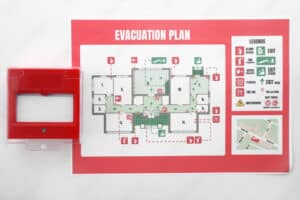Choosing the right kind of insurance is one of the biggest decisions you can make, but it is rarely a one-size-fits-all approach. For those living in a strata property, understanding the difference between insurances can mean hundreds of dollars saved every year.
One of the most common questions asked is, “Do you need home contents insurance in a strata property?” Let’s talk about the differences between the two, and why they are important when it comes to your property.
What is the difference between home contents insurance and building insurance?
Apartment complexes, townhouses and communal properties will typically legally require body corporate insurance, also known as strata insurance or building insurance. This is arranged by the Owners Corporation, and is paid for by the owners of the properties through regular levies. Building insurance covers the physical structure of the complex or building, as well as communal areas and any other permanent fixtures on the property. The cover also extends to personal liability in case occupants or visitors are injured in communal areas.
Home and contents insurance is a personal insurance that covers any personal belongings held within a specific apartment or property, as well as providing protection for the structure itself. Furniture, valuables and other items located within a household come under the scope of home and contents insurance, and will not be covered by building insurance in the event of an incident. It’s important to keep in mind that high-value items, like jewellery, may only be covered up to a certain amount depending on your policy.
If you are using the property as an investment, another cover worth considering is landlord insurance. This provides cover for many of the risks and liabilities associated with renting a property out, including wear and tear, burst pipes and appliance-related damage.
Do I need both?
While house-owners typically require both building and contents insurance, strata properties will already likely have insurance in place to protect the building from any damage. Therefore, an owner of an apartment, townhouse or other allotment will not need to purchase building insurance – only contents.
It may be tempting to skip contents insurance – however, if something were to happen that significantly damages the building and your property, there is a good chance that your valuables will be affected. Your personal effects are not covered by the strata insurance, so make sure that you have the appropriate cover for your situation.
What kind of contents insurances are available?
In Australia, there are two kinds of home and contents insurance available: replacement value and new-for-old cover.
Replacement value insurance covers the current value of your belongings, accounting for depreciation over time. Furniture, appliances and electronics lose value over time, and the insurance will pay out the value of your item at the time, not what you initially paid for it.
New-for-old cover offers direct or comparative replacements for damaged items. Should your belongings be damaged or destroyed, this cover will provide new items as a direct replacement. This insurance is typically more expensive than replacement value schemes, and premiums will be significantly higher over the course of your policy.
Choose a contents policy that is right for you
Your insurance should reflect your current needs and situation, and it’s important to review it regularly to ensure that you have appropriate coverage. Read the Product Disclosure Statement and calculate the value of your belongings before progressing with any insurance purchase.
The same applies to strata insurance, More Than Strata only uses properly qualified strata specialist insurance brokers to arrange strata insurance on behalf of communities we manage. This ensures the Owners Corporation enjoys the broadest market access, has appropriate cover and at competitive pricing.
Want to know more about different insurance schemes for strata properties? Contact More Than Strata for tips and tricks on how to protect your assets.
Disclaimer: The information contained in this article is general in nature and does not take into account your personal situation. You should always consult an appropriately qualified adviser for advice that addresses your specific needs and situation before making any purchase decisions.





